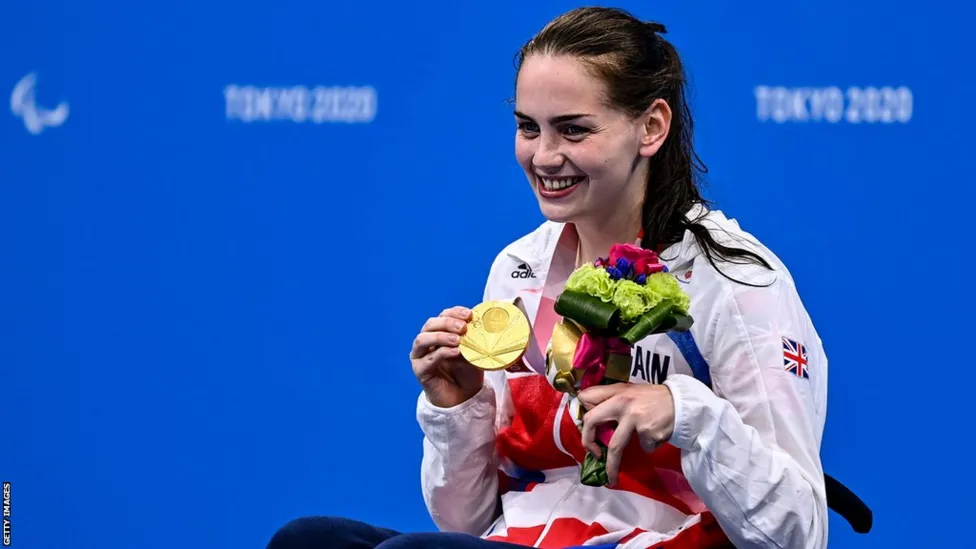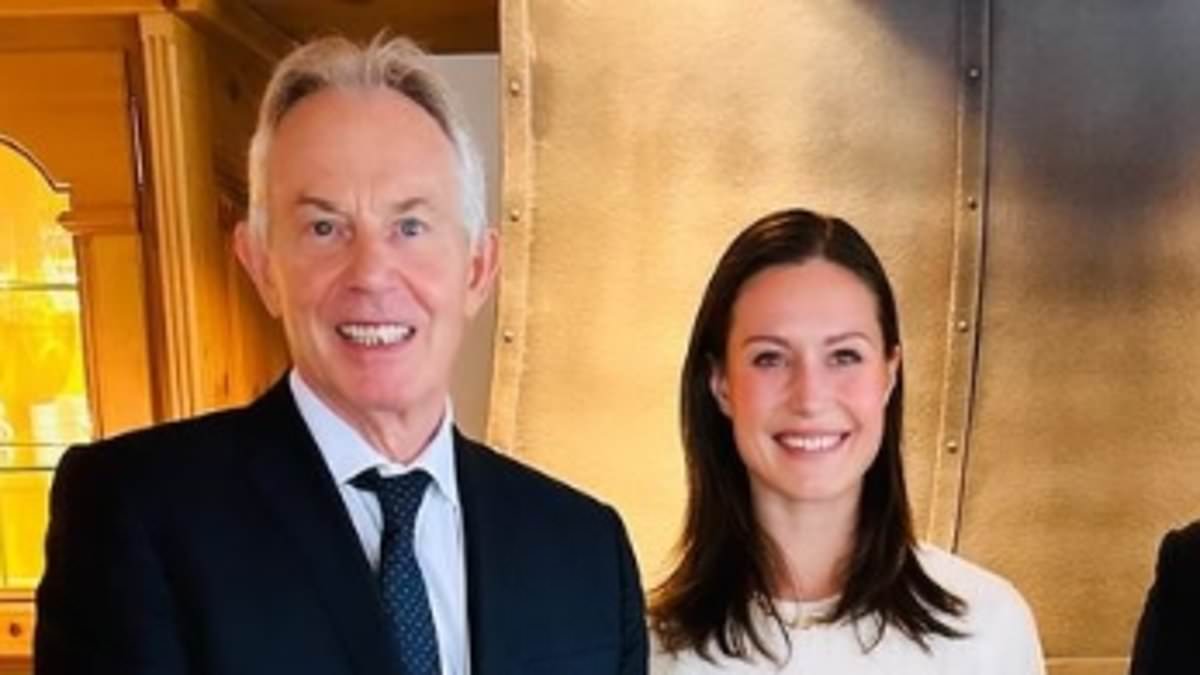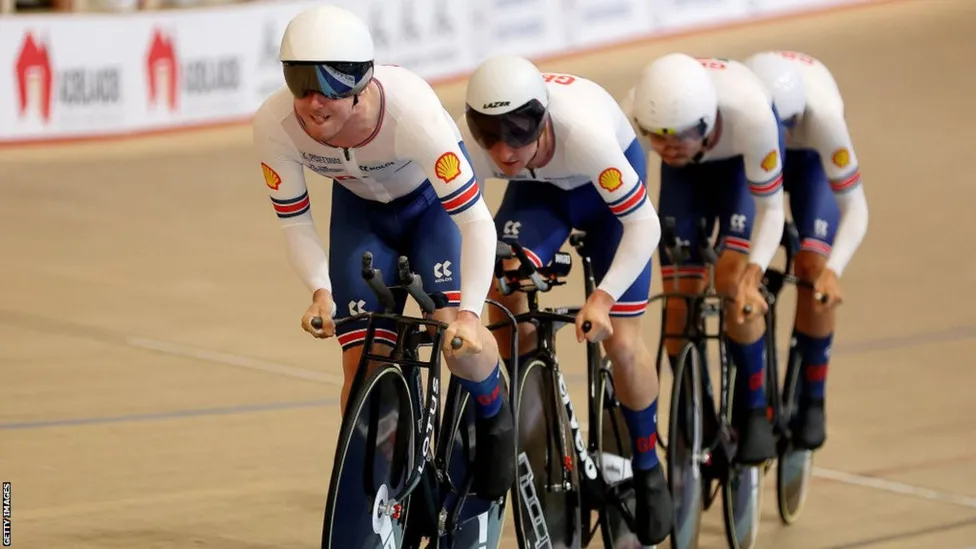Tully Kearney: Paralympic champion makes formal complaint over classification process
The swimmer, 26, has written to the world governing body claiming its “appalling and unacceptable treatment” of her has “almost broken me”.
Kearney – a 10-time world champion – states the panel who assessed her had “failed in their duty of care”, and requests permission to appeal against its decision.
She also claims the findings of the classification team “were irrational and unreasonable and demonstrated a fundamental lack of knowledge and misunderstanding of my disability” and “ignored the supporting medical evidence”.
She told BBC Sport her classification had ended her hopes of winning medals at this year’s Paris Paralympics because she has been placed in a category featuring less impaired athletes than those she has been racing against previously.
In response, World Para Swimming (WPS) told : “The details of an individual athlete’s classification are confidential and World Para Swimming is unable to comment on the classification of individual athletes.”
British Swimming said it had “provided full support and advice to Tully throughout this process as one of our world class programme athletes, and will continue to do so”.
Background
Содержание статьи:
The classification system puts Paralympic athletes into groups depending on the level of their impairment to try to ensure fair competition.
Kearney was born with cerebral palsy and developed generalised dystonia, a progressive neurological movement disorder, in her mid-teens.
A multiple British, European and world record holder, she won gold at the Tokyo Paralympics in 2021 in the 100m freestyle S5 and a silver in the 200m freestyle S5.
She became an MBE in the 2022 New Year Honours.
Having been classified as S5 since 2018, Kearney told WPS she was “unexpectedly changed” to S6 after a review in 2023, meaning that “I am now required to compete against athletes which a much lower degree of impairment when compared with myself”.
The Loughborough-based swimmer added: “As I have two neurological conditions, one stable and one progressive, it is irrational and unreasonable to reach a conclusion on my classification status that states my disabilities have actually ‘improved’. This is a medical impossibility…”
Blaming the “incompetence” of the classification team, Kearney said: “I just feel hugely disappointed and let down by [WPS]…This is just so insensitive and hurtful to me on a personal level.”
‘Inherently flawed’
The classification system has faced scrutiny in recent years, with five-time Paralympic champion Hannah Cockroft criticising “humiliating” tests in 2017, alongside concerns it could be open to abuse. A new system was adopted in 2018.
Kearney explained how after an initial assessment in Sheffield in March 2023, she was made to wait for “approximately six hours with no communication”, before being told that classifiers could not reach a decision and she would need to go through a follow-up. She claims no reason was given and that paperwork she was told would be forwarded to her after the event never arrived.
A second review took place four months later in Manchester, with Kearney claiming that an “excessive” additional 10 points were added to her overall classification score.
She wrote: “[It] cannot be explained or justified by subjective views of individual assessors. This leads me to believe that my classification review lacked objectivity.
“The classification system itself has not changed between 2018 and 2023 so this cannot be a reason for the change in my classification.”
Kearney said she was shown paperwork by the classifiers asserting that she walks with crutches. She says that this has has not been the case since 2016, and that she is now a wheelchair user.
“Not only was it an insensitive error but also indicates that the process that took place…was inherently flawed,” she argued.
She also claims that one of the classifiers asked an official “to haul me up out of my wheelchair into a semi-standing position then hold me up with my face against the wall to prevent me from falling and stating that this constituted ‘walking’…This was not only clearly insensitive, demeaning, and frankly humiliating to myself as an athlete and as a disabled person, but yet again demonstrates a fundamental misunderstanding of my disability…”
She wrote: “I just do not feel that the volunteer classifiers who can be medics in any field of medicine, or physiotherapists, have the necessary knowledge and expertise to assess complex neurological conditions such as mine, which puts me and similarly impaired athletes at a very big disadvantage compared to our peers…”
‘Defies belief’
Kearney claims WPS and the classification team were made aware that at the time of her reviews, she was recovering from concussion after an accident, but failed to take that into account.
“Requiring an athlete recovering from a known brain injury to wait around for such extended periods of time…and then expecting them to check what is very complex classification paperwork in only one hour defies belief,” she wrote.
“It was wholly unfair to expect an athlete recovering from a brain injury to…make an informed decision about whether or not the information was accurate… I felt pressured into signing the forms just so I could leave as I felt so ill.”
She has asked WPS to permit an appeal even though the two-week window for doing so has elapsed.
“I have always embraced the Paralympic movement and philosophy but my treatment during the last year has been arguably discriminatory by an organisation which is supposed to empower disabled people” she wrote.
“In the area of Para-sport, we are afforded so few rights, eg the right to protest personally rather than via our national governing body.”






